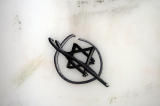
The Trump administration has initiated a formal review of the AUKUS defence pact—a multibillion-dollar agreement forged under President Joe Biden—according to a senior U.S. defence
official. The pact, signed in 2021, enables Australia to acquire conventionally armed nuclear-powered submarines with assistance from the United States and the United Kingdom.
Led by the Pentagon, the review is raising concerns in Canberra and London. Australia sees the submarines as central to its national defence strategy amid growing tensions with China. The UK has also embedded AUKUS into its long-term submarine production plans.
"We are reviewing AUKUS to ensure it aligns with the President’s America First agenda," the official said, referring to former President Trump’s guiding policy. Any changes will be announced through official channels.
Concerns inside the Pentagon
AUKUS was originally crafted to counter China’s military rise by deepening defence ties between the three nations. Under the deal, Australia would purchase U.S.-made Virginia-class submarines beginning in 2032 and host rotational deployments from U.S. and UK subs starting in 2027.
However, some Trump-era defence advisers, including top Pentagon policy official Elbridge Colby, have expressed strong doubts about the arrangement. Colby warned that U.S. submarines are a limited and vital asset, essential for American strategy in potential conflict zones such as the First Island Chain—stretching from Japan to Borneo and encircling China’s coast.
“My concern is why are we giving away this crown jewel asset when we most need it,” Colby said.
Strategic implications for allies
Australia has committed A$368 billion (NZ$396 billion) over 30 years to the AUKUS project, including major investments in U.S. and domestic submarine-building capabilities. The UK, meanwhile, announced billions of pounds in new funding to expand its submarine production, with plans to build up to 12 next-generation attack submarines.
Despite the massive investment, former Australian Prime Minister Malcolm Turnbull expressed doubts about the project's future. He suggested Australia may end up hosting American naval operations rather than fielding its own submarine fleet.
Next steps and uncertainty
The White House and embassies of Australia and the UK have not yet commented on the review. Defence Secretary Pete Hegseth told Congress that the U.S. is engaged in “honest conversations” with its allies, aiming to ensure close operational integration.
While Australia has not formally committed to using its future submarines in any potential conflict with China, its historic military alliance with the U.S. suggests strong alignment.
“I think we can make a decent bet that Australia would be there with us,” Colby said. Photo by Gage Skidmore from Surprise, AZ, United States of America, Wikimedia commons.









































